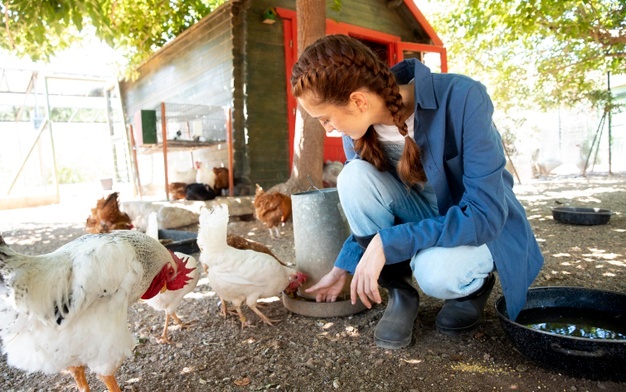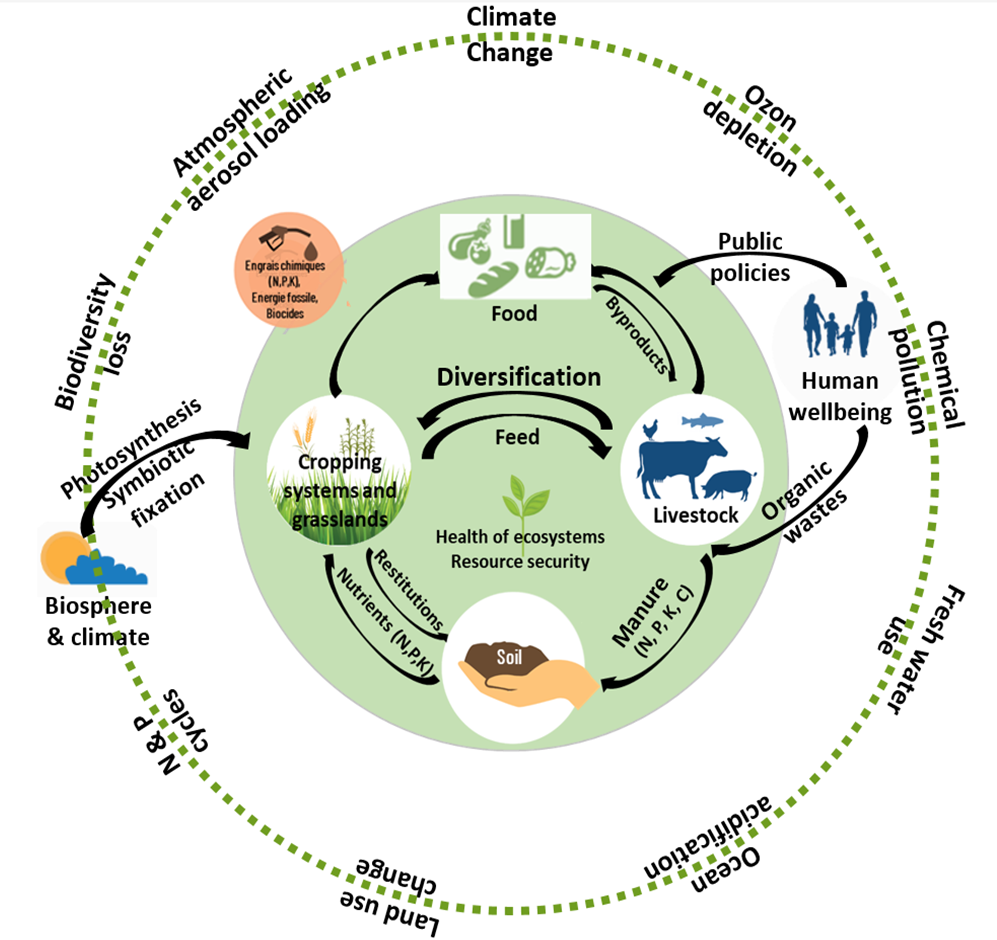ESR blog
Since the transition from hunter-gatherer to farming, humanity has gone through several changes in the way we farm. Livestock production systems have evolved gradually from mere domestication to intensification across the world. Population growth coupled with improvements in engineering, science and technology coincided with the intensification of production. With our sophisticated technology, we have moved the world from the era of small-scale backyard farming to an intensified system utilizing large expanses of land. We have shortened the length of time from hatching eggs to having chicken on our dinner table. We have in fact taken the world out of a major food crisis and have provided a livelihood for millions if not billions of people all over the world. Indeed farming changed the world.
Sadly, this progress in farming did not come with its consequences, forests are cleared, chemicals run from farmlands into our water bodies and we waste natural resources. But looking at the current state of the world, we cannot continue to farm like we used to. It is time perhaps, for the world to change farming! Our challenge for the future is not just to provide food for the rapidly growing population, but to do so in a sustainable way. We should do so by providing the next generation with a protected and clean environment.
Poultry and pig products fill up our supermarket shelves and are the most consumed animal products in the world, but at what cost to our environment? Many countries have indeed pledged to protect the environment and reduce greenhouse emissions to net-zero by 2050. A very bold commitment and promise – this may be – it has led to tougher policies.
Notwithstanding, there are many opportunities in making animals more resilient by combining multidisciplinary methods such as breeding techniques and nutritional strategies. For instance, some of the PhD projects of the MonoGutHealth consortium are designed to understand the methods of mitigating heat stressA condition when animals do not have the ability to withstand high ambient temperatures especially w… in broiler chickensChickens kept for meat production. Fast growing breeds can reach a weight of over 2 kg at 5 weeks of… by using the novel in-ovo technology for programming the gut microbiomeCollective genetic material of the microbes (for example bacteria, fungi and viruses) that live insi….
On the other hand, the livestock industry also has a responsibility to cut down emissions by practicing sustainable farming practices which include a management system that judicially uses natural resources.
In conclusion, our sophisticated technology may have helped us intensify our farming system, but in the face of new challenges that befall us, we must design more innovative methods of bringing food to our table. We must not only develop novel ways of farming but also make our livestock resilient against current environmental stress. MonoGutHealth is at the forefront of training new breeds of scientists that would be able to tackle such challenges that face the livestock industry in the era of climate change.

